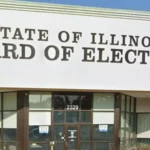
Another challenge to the power of the administrative state was argued at the Supreme Court in Securities and Exchange Commission v. Jarkesy on November 29, 2023. By statute, Congress authorizes the SEC to hold administrative enforcement proceedings for civil penalties. But this raises several issues. Brokers, Hedge Fund managers, as in this case, and others, are brought before a quasi-judicial proceeding at the SEC without a trial by jury, prescribed in Article III of the Constitution and guaranteed for each individual as a right under the Seventh Amendment. The administrative law judges at the SEC have what is known as “removal protection” or protection from being fired, in potential violation of Article II of the Constitution. And Congress may not have the ability to delegate certain powers to an administrative agency of the Executive Branch under the non-delegation doctrine. The non-delegation doctrine argues that Congress cannot delegate its legislative powers to other organizations, such as administrative agencies. In this case, it was argued that Congress had violated this doctrine by permitting the SEC to choose whether to bring securities fraud claims to court or infront of an Administrative Law Judge. The doctrine has been little used in the past century, though Landmark has advocated for its enforcement by the court.
While issues such as the non-delegation doctrine and Article II were raised, for both sides, the debate centered primarily around the concept of public and private rights, how the government’s public rights to adjudicate disputes through administrative agencies should be defined, and whether that clashes with the Seventh Amendment and Article III of the U.S. Constitution, which guarantee a trial by jury. What constitutes a private right is a debated topic, but generally they are rights which the government cannot infringe upon without Court involvement. Public rights, but contrast, are determined by the state and include things such as the right to access public parks, patents, and in this case, the right to adjudicate certain matters in an administrative setting rather than before a jury. The counsel for the SEC, Brian Fletcher, drew heavily from the case Atlas Roofing Co. v. Occupational Health and Safety Review Commission which validated that the Seventh Amendment is not applicable in statutory enforcement proceedings. In contrast, the attorney for Mr. Jarkesy, S. Michael McColloch, drew from cases such as Granfinanciera, S.A. v. Nordberg, which he argued limited the scope of Atlas. McColloch argued that this limitation required that cases such as Jarkesy’s be heard in front of a jury, rather than in an administrative setting, as prescribed by the Seventh Amendment and Article III.
Mr. Fletcher, the SEC’s attorney, was hard-pressed by more conservative justices such as Neil Gorsuch and Brett Kavanaugh to explain why a lawsuit between two private parties that would necessitate a jury can be adjudicated by an administrative panel without a jury simply because the government is bringing the suit. Justices Gorsuch, Kavanaugh, Thomas, and Justice Alito in particular, all seemed to be skeptical of Fletcher’s argument which they suggested would allow the government to invest increasing power with the administrative state at the expense of private citizens and their Seventh Amendment rights.
On the other hand, the justices were curious to know what test Mr. McColloch would create to allow courts to determine when private parties were entitled to a trial by jury and when administrative agencies could adjudicate disputes. McColloch suggested the test be whether they involved a claim that existed in English common law in 1791 and whether they were looking for legal relief as opposed to equitable or admiralty relief. Justice Sotomayor argued that this suggested test would undo a massive amount of precedent and completely upend the structure of the administrative state. She’s right and in our view that would be a good result.
SUPPORT LANDMARK LEGAL FOUNDATION
We are truly facing existential threats to our individual rights and liberties, the Constitution, and our national character. If unchallenged, this assault on our very way of life will ruin our great nation. With your financial and moral support, Landmark is not going to let that happen without a fight. Will you join us?
JOIN OUR MAILING LIST
Never miss an update from Landmark Legal Foundation as we continue the fight to preserve America’s principles and defend the Constitution from the radical left.
Landmark will NEVER share your contact information and we will not flood your inbox.





